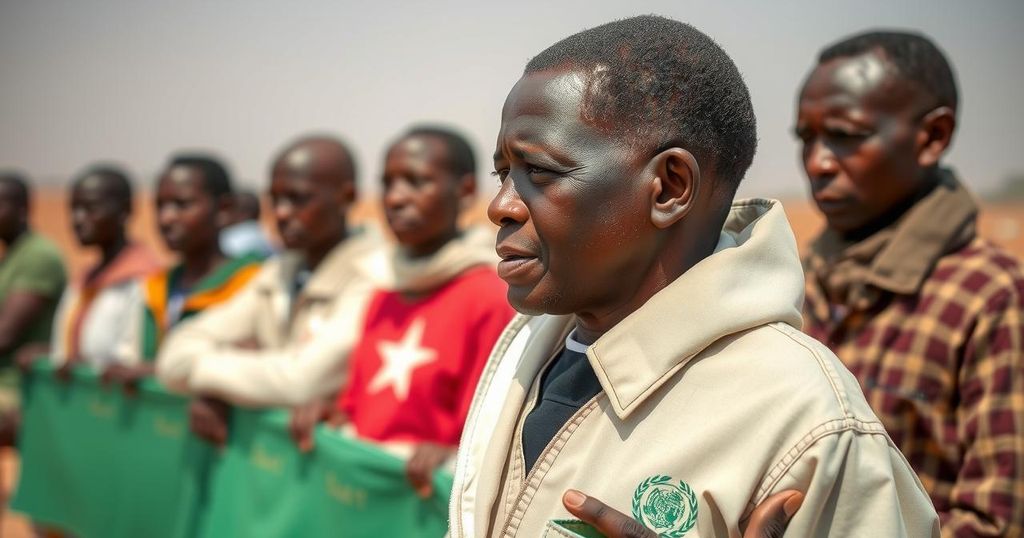The Sudanese government has rejected a UN report declaring famine in five areas, stating that the findings are speculative and not representative of the situation. The conflict between the army and the RSF has led to severe food insecurity, impacting millions. Accusations of bureaucratic hindrances to humanitarian efforts have been made against the government, complicating the crisis further.
The Sudanese government has officially rejected a recent United Nations report indicating the emergence of famine in five specific regions due to ongoing conflict. According to the Integrated Food Security Phase Classification (IPC) review, armed conflict between the Sudanese army and the paramilitary Rapid Support Forces (RSF) has contributed to famine conditions affecting 638,000 individuals, with an additional 8.1 million at risk of starvation. The Sudanese foreign ministry denounced the IPC’s findings as speculative and accused it of failing to consult with the government prior to publication.
Since the onset of the conflict in April 2023, the Sudanese government has resided in Port Sudan, as the capital, Khartoum, remains a warzone. The government has faced allegations of obstructing international assessments of food security and creating barriers to humanitarian assistance. Organizations such as the International Rescue Committee have criticized the army’s actions, claiming the government is leveraging its status to prevent UN agencies from accessing RSF-controlled territories. The ongoing conflict has resulted in dire consequences for the population, with over 24.6 million people experiencing acute food insecurity.
The situation in Sudan has escalated dramatically since the outbreak of conflict between the Sudanese army and the RSF in April 2023, resulting in a humanitarian crisis marked by widespread famine. The IPC’s assessment is an essential tool used by UN agencies to gauge food security levels. However, skepticism surrounds the report due to the Sudanese government’s refusal to acknowledge the classification of famine, leading to ongoing tensions between international agencies and the Sudanese authorities. The conflict has displaced millions and exacerbated food insecurity for both army-controlled and RSF-held regions.
In summary, the Sudanese government continues to contest the findings of a UN-backed famine report, arguing that the IPC’s conclusions are speculative and lack sufficient consultation. This rejection persists despite significant evidence of acute food insecurity affecting millions. The situation highlights the complex interplay between governance, conflict, and humanitarian response in Sudan, as international agencies face challenges in providing aid amidst a deteriorating crisis.
Original Source: jordantimes.com






